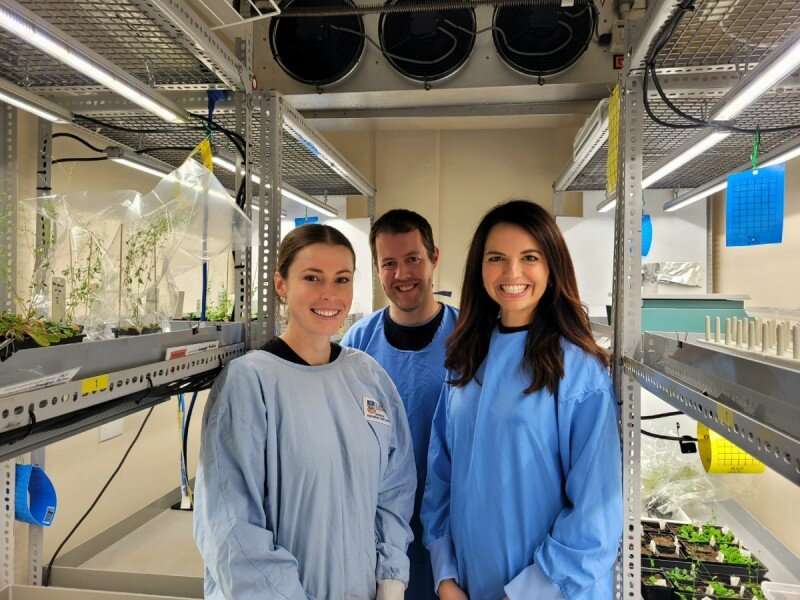This article has been reviewed according to Science X's editorial process and policies. Editors have highlighted the following attributes while ensuring the content's credibility:
fact-checked
peer-reviewed publication
trusted source
proofread
Failed antibiotic could be a game-changing weed killer for farmers

Weed killers of the future could soon be based on failed antibiotics.
A molecule that was initially developed to treat tuberculosis but failed to progress out of the lab as an antibiotic is now showing promise as a powerful foe for weeds that invade our gardens and cost farmers billions of dollars each year.
While the failed antibiotic wasn't fit for its original purpose, scientists at the University of Adelaide discovered that by tweaking its structure, the molecule became effective at killing two of the most problematic weeds in Australia, annual ryegrass and wild radish, without harming bacterial and human cells. This research has been published in the journal Communications Biology.
"This discovery is a potential game changer for the agricultural industry. Many weeds are now resistant to the existing herbicides on the market, costing farmers billions of dollars each year," said lead researcher Dr. Tatiana Soares da Costa from the University of Adelaide's Waite Research Institute.
"Using failed antibiotics as herbicides provides a short-cut for faster development of new, more effective weed killers that target damaging and invasive weeds that farmers find hard to control."
Researchers at the University's Herbicide and Antibiotic Innovation Lab discovered there were similarities between bacterial superbugs and weeds at a molecular level.
They exploited these similarities, and by chemically modifying the structure of a failed antibiotic, they were able to block the production of amino acid lysine, which is essential for weed growth.

"There are no commercially available herbicides on the market that work in this way. In fact, in the past 40 years, there have been hardly any new herbicides with new mechanisms of action that have entered the market," said Dr. Andrew Barrow, a postdoctoral researcher in Dr. Soares da Costa's team at the University of Adelaide's Waite Research Institute.
It's estimated that weeds cost the Australian agriculture industry more than $5 billion each year.
Annual ryegrass in particular is one of the most serious and costly weeds in southern Australia.
"The short-cut strategy saves valuable time and resources, and therefore could expedite the commercialization of much needed new herbicides," said Dr. Soares da Costa.
"It's also important to note that using failed antibiotics won't drive antibiotic resistance because the herbicidal molecules we discovered don't kill bacteria. They specifically target weeds, with no effects on human cells," she said.
It's not just farmers who could reap the benefits of this discovery. Researchers say it could also lead to the development of new weed killers to target pesky weeds growing in our backyards and driveways.
"Our re-purposing approach has the potential to discover herbicides with broad applications that can kill a variety of weeds," said Dr. Barrow.
More information: Emily R. R. Mackie et al, Repurposed inhibitor of bacterial dihydrodipicolinate reductase exhibits effective herbicidal activity, Communications Biology (2023). DOI: 10.1038/s42003-023-04895-y
Journal information: Communications Biology
Provided by University of Adelaide



















